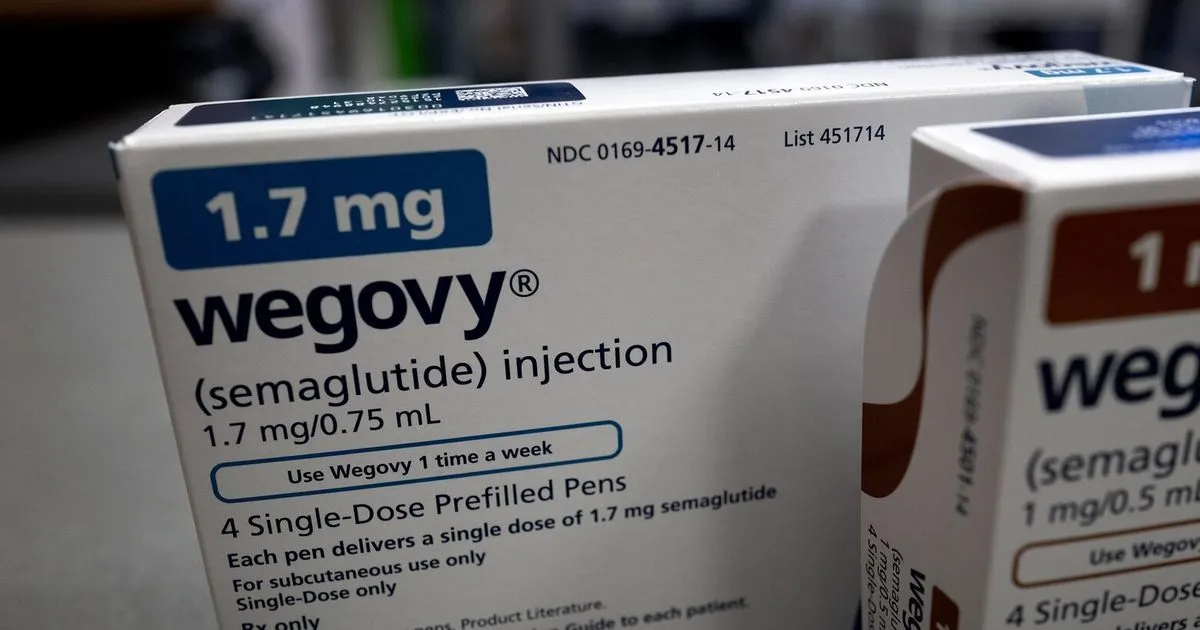
Recent research has unveiled that semaglutide, the active compound in the popular weight-loss drug Wegovy, may offer a new treatment option for an increasingly prevalent liver disease known as metabolic dysfunction-associated steatohepatitis (MASH). This groundbreaking study, published in the New England Journal of Medicine, involved 800 adults diagnosed with a severe form of MASH.
MASH occurs when excess fat accumulates in the liver, resulting in inflammation, cellular damage, and scarring. This condition affects nearly 15 million adults across the United States and is one of the leading causes of liver transplants nationwide. MASH is closely associated with rising rates of obesity and Type 2 diabetes, both of which have become significant public health concerns in recent years.
The Phase 3 clinical trial, sponsored by Novo Nordisk—the manufacturer of Ozempic and Wegovy—focused on participants with moderate to advanced liver scarring. After a 72-week treatment period, findings indicated that approximately 63% of individuals receiving semaglutide injections experienced a reduction in liver fat and inflammation, without any worsening of liver scarring. In contrast, about 34% of those in the placebo group showed similar improvements.
Moreover, nearly 37% of the semaglutide group had less scar tissue than they initially presented, compared to only 22% in the placebo cohort. These results underscore the critical role that inflammation and fat within the liver play in causing liver scarring in individuals with MASH, which can ultimately lead to liver failure, as noted by Dr. Vandana Khungar, a hepatologist at Yale New Haven Hospital.
In light of these promising results, Novo Nordisk has submitted a request to the Food and Drug Administration (FDA) for approval of Wegovy as a treatment for MASH. Additionally, Eli Lilly, the producer of competing medications Mounjaro and Zepbound, is also investigating whether the compounds in their products can effectively treat MASH, with early findings showing potential.
Currently, the only FDA-approved medication for MASH is Rezdiffra, which received clearance in March 2024. Furthermore, recent studies suggest that bariatric surgery may also be beneficial for treating MASH, with weight loss being a common recommendation among healthcare providers to improve liver health and prevent further scarring.
Notably, nearly three-quarters of the trial participants had obesity, with over half also having been diagnosed with Type 2 diabetes. Both groups, including those receiving semaglutide and those on placebo, underwent nutrition and exercise counseling, which appeared to positively affect liver health outcomes. Participants in the placebo group lost an average of 2% of their body weight, while those on semaglutide lost around 11%.
According to Dr. Arun Sanyal, director of the Stravitz-Sanyal Institute for Liver Disease at Virginia Commonwealth University and the lead author of the study, “there’s no question” that weight loss significantly contributed to the improvements observed in patients treated with semaglutide. Participants taking the medication also exhibited lower blood sugar levels and reduced insulin resistance, both of which likely enhanced liver health outcomes.
However, the study does have limitations. Dr. Khungar pointed out that the majority of participants were white, with only five being Black. Furthermore, as most participants were obese, it remains uncertain whether the drug will be equally effective in individuals without excess weight. Long-term data is necessary to determine if semaglutide can prevent liver transplants or mortality associated with liver disease.
Novo Nordisk is committed to monitoring the trial participants to assess the progression of their liver disease, with new data expected by 2029.